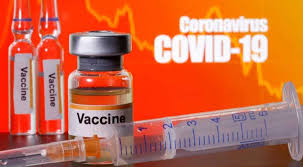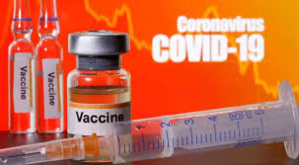The much awaited results of the first phase of human testing of a novel coronavirus vaccine candidate developed by the University of Oxford are out and they show that the dose is apparently safe and is able to train the human immune system.
This trial comprised of a total of 1,077 people and the trial showed that the volunteers administered the injection managed to make antibodies and white blood cells that have the capacity to fight the novel coronavirus.
While the results of the trial are hugely promising, it is too early to come to a judgment on whether the vaccine is enough to offer protection from the disease. The developers are currently undertaking larger trials of the vaccine.
About 100 million doses of the vaccine have already been ordered by the United Kingdom for its citizens. .
The development of the vaccine, known as ChAdOx1 nCoV-19, is being undertaken at an unprecedented pace.
The vaccine has been developed from a genetically engineered virus that causes the common cold in chimpanzees. The scientists working on the vaccine have heavily modified the virus so that it not only is unable to cause infections in people but also to make the virus look more like the novel coronavirus. This was achieved by the scientists by transferring the genetic instructions for the coronavirus's "spike protein" – which is the crucial part of the virus that invades the cells of human bodies, to the virus that they are currently developing.
That made the virus used in the vaccine look more like the novel coronavirus which allowed the human immune system to learn how to attack it.
Antibodies have attracted much of the focus on in the fight against the novel coronavirus so far but these are just one part of the human immune defense system. Antibodies are small proteins that are made by the human immune system and which stick onto the surface of viruses. The novel coronavirus can be disabled by neutralising antibodies.
T-cells are a type of white blood cell that has the power to help coordinate the immune system and has the ability to identify those human cells that have been infected and accordingly destroy them.
An antibody and a T-cell response are induced in almost all effective vaccines.
The Oxford vaccine study showed that there was a peaking in the levels of T cells after 14 days of the vaccination while the peaking of antibody levels happened after 28 days. The study was however not conducted for a long enough time to understand the long term immunity effect of the vaccine.
The study results also revealed that the vaccine is safe for humans but there are some side effects. While these side effects of the vaccine are not dangerous for humans at all, either fever or headache was developed by 70 per cent of he volunteers participating in the trial.
These side effects could be managed with paracetamol, the researchers say.
"There is still much work to be done before we can confirm if our vaccine will help manage the COVID-19 pandemic, but these early results hold promise," said Prof Sarah Gilbert, form the University of Oxford, UK.
(Source:www.bbc.com)
This trial comprised of a total of 1,077 people and the trial showed that the volunteers administered the injection managed to make antibodies and white blood cells that have the capacity to fight the novel coronavirus.
While the results of the trial are hugely promising, it is too early to come to a judgment on whether the vaccine is enough to offer protection from the disease. The developers are currently undertaking larger trials of the vaccine.
About 100 million doses of the vaccine have already been ordered by the United Kingdom for its citizens. .
The development of the vaccine, known as ChAdOx1 nCoV-19, is being undertaken at an unprecedented pace.
The vaccine has been developed from a genetically engineered virus that causes the common cold in chimpanzees. The scientists working on the vaccine have heavily modified the virus so that it not only is unable to cause infections in people but also to make the virus look more like the novel coronavirus. This was achieved by the scientists by transferring the genetic instructions for the coronavirus's "spike protein" – which is the crucial part of the virus that invades the cells of human bodies, to the virus that they are currently developing.
That made the virus used in the vaccine look more like the novel coronavirus which allowed the human immune system to learn how to attack it.
Antibodies have attracted much of the focus on in the fight against the novel coronavirus so far but these are just one part of the human immune defense system. Antibodies are small proteins that are made by the human immune system and which stick onto the surface of viruses. The novel coronavirus can be disabled by neutralising antibodies.
T-cells are a type of white blood cell that has the power to help coordinate the immune system and has the ability to identify those human cells that have been infected and accordingly destroy them.
An antibody and a T-cell response are induced in almost all effective vaccines.
The Oxford vaccine study showed that there was a peaking in the levels of T cells after 14 days of the vaccination while the peaking of antibody levels happened after 28 days. The study was however not conducted for a long enough time to understand the long term immunity effect of the vaccine.
The study results also revealed that the vaccine is safe for humans but there are some side effects. While these side effects of the vaccine are not dangerous for humans at all, either fever or headache was developed by 70 per cent of he volunteers participating in the trial.
These side effects could be managed with paracetamol, the researchers say.
"There is still much work to be done before we can confirm if our vaccine will help manage the COVID-19 pandemic, but these early results hold promise," said Prof Sarah Gilbert, form the University of Oxford, UK.
(Source:www.bbc.com)






